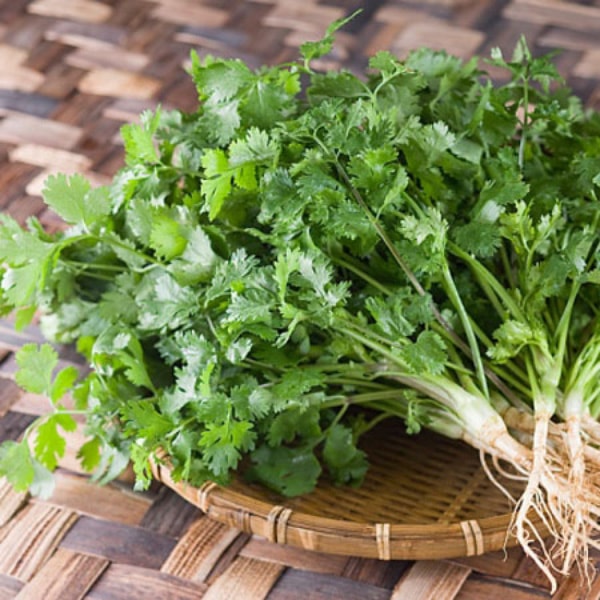Coriander: Who should not eat it?
Coriander is used as an indispensable spice in every Vietnamese meal. However, there are people who should not eat coriander.
 |
| Coriander is very good but many people should not eat it. |
Effects in treatment
Has blood filtering feature
Coriander contains a lot of ascorbic acid and is considered to have very good blood purifying properties. Regularly drinking coriander juice will help lower blood cholesterol.
Treat inflammation
Coriander contains two important nutrients, cineole and linoleic acid, which have very good anti-inflammatory effects. Therefore, for those with arthritis or rheumatism, coriander is considered a food that should not be missed in daily meals.
According to information in the journal Medical Microbiology, scientists from the University of Beira Interior, Portugal have proven that coriander has antibacterial properties. Applying this property of coriander in the food and medical industries can inhibit the growth of microorganisms, preventing and treating antibiotic-resistant infections.
Treat diarrhea
Coriander contains abundant borneol and linalool which aid digestion and treat digestive disorders such as indigestion, vomiting, dysentery, hepatitis and colitis.
Additionally, it is also very effective in treating diarrhea caused by bacteria and fungi because the compounds cineole, borneol, limonene, alpha pinene and beta phelandrene present in coriander have very strong antibacterial properties.
For fresh breath
Thanks to the powerful antiseptic compound citronelol and other antibacterial compounds, eating coriander regularly helps the body fight mouth ulcers. In addition, coriander also helps you have fresher breath..
Good for "that thing"
Coriander is believed to be a natural aphrodisiac and since ancient times, people of the Mediterranean region, especially India, have used coriander extensively as a remedy in combination with other herbs to enhance sexual desire.
Reduce bad cholesterol
Regularly eating or drinking coriander juice will help reduce bad cholesterol in the blood effectively. This is thanks to the essential compounds in coriander such as linoleic acid, oleic acid, palmitic acid, stearic acid and ascorbic acid (vitamin C).
These compounds help reduce bad cholesterol from sticking to the walls of arteries and veins, while increasing the amount of good cholesterol in the blood, helping to keep the cardiovascular system healthy.
Helps strengthen memory
New research by scientists at the Federal University of Rio de Janeiro (Brazil) has shown that apigenin, an active ingredient found in many herbs such as coriander and red pepper, helps form and strengthen connections between nerve cells in humans.
Scientists examined the effects of apigenin on human nerve cells. The results showed that this active ingredient had a special effect in supporting stem cells to transform into nerve cells in just 25 days.
When testing on neurons that had been added apigenin in culture, the synapses developed stronger and more sophisticated than those of normal cells. The development of these synapses is important for memory consolidation and learning.
People who should not eat coriander
People with liver problems
Because coriander contains some volatile essential oils that activate the most important organs in the body. In addition, coriander contains strong antioxidants that help eliminate liver problems.
However, this is only true when you eat coriander in moderation, if you eat too much, the ingredients in the vegetable will work in the opposite way, increasing bile secretion and eventually damaging the liver. Therefore, people with liver disease should limit eating this vegetable.
People with stomach problems
Coriander is known to be a medicinal herb that cures digestive problems. But if overused, it can cause stomach problems, leading to various digestive disorders.
According to a medical report, using 200ml of coriander extract for 1 week continuously caused symptoms such as gas formation in the abdomen, stomach pain, abdominal pain, vomiting, and even unsteady movement.
Not good for pregnant women
Pregnant mothers should not eat too much coriander because it can affect the health of the baby. Some components in coriander are known to affect the normal functioning of the female reproductive glands, causing danger to pregnant women and the health of the fetus developing in the womb.
People with allergies
The essential oils found in coriander leaves and seeds are irritating to the skin, so people who come into frequent contact with coriander leaves and seeds should wear gloves when handling them.
According to health and life
| RELATED NEWS |
|---|





.jpg)


